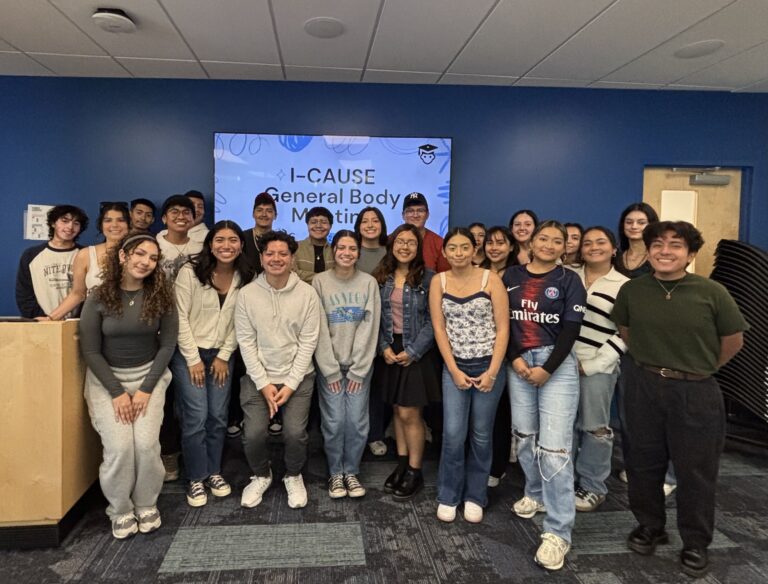CHAMPAIGN – Shortly after taking office last week, President Donald Trump launched immigration enforcement raids across the country and eliminated protections for immigrants, which has immigrants’ rights advocates in Champaign-Urbana doubling down on support and resources to people who are in the U.S. without legal status.
Earlier this week, the Trump administration ended the extension for Temporary Protected Status, which authorized Venezuelan migrants to work in the country, that was implemented during the Biden administration, according to NPR.
During the Biden administration, places like schools and churches across the U.S. were protected from enforcement action because they provide people access to medical care, education and shelter, according to a press release from the U.S. Department of Homeland Security in 2021. The Trump administration removed that guidance and agents from the U.S. Immigration and Customs Enforcement can now enter those areas to conduct arrests.
Jocelyn Aranda-Ortiz, the Family Support Network Coordinator at the Illinois Coalition for Immigrant and Refugee Services, hosted a Know Your Rights workshop at La Casa Cultural Latina on the University of Illinois Urbana-Champaign campus late last year. She explained what someone can do if approached by Immigration and Customs Enforcement agents.
If ICE agents knock on someone’s door, Ortiz said the first step is to remain calm. She said individuals have the right to keep their doors closed if agents do not have a judicial warrant.
People can request for the warrant to be slipped under a door or shown through a window to avoid granting the agents access inside, Ortiz said. A valid warrant should include the full address of the property agents are trying to enter, their reasoning for entering and the date it was signed by an official judge.
Individuals also have the right to record or write down what is happening to protect themselves, she told IPM News.
“It is important to reinforce the fact that regardless of your immigration status, on United States soil, you have basic rights based on the Constitution,” she said.
Ortiz said it is important for the community to unite in a time of uncertainty and ensure there is a pathway to equity.
Another group on campus also working to bring together people who are affected by the latest crackdown on immigration is the Illinois Coalition Assisting Undocumented Students’ Education, or I-CAUSE. Samantha Martin, the group’s president, said students have been worried about Trump’s mass deportations since he won re-election in November.
Because of their worries, the organization hosted a series of events titled, “Immigrant Activism: Art and Healing” with groups and sponsors like La Colectiva and La Casa Cultural Latina.
According to an Instagram post from I-CAUSE, these events aimed to teach people in the immigrant community how they can heal and empower each other. Martin said some of the sessions were private.
“Students that are undocumented might want to open up about themselves and they might not be comfortable doing so in public spaces with other people,” she said.
Martin said the private sessions included meditation, art-making and calming music.
Last semester, the organization focused on providing opportunities for students to learn about their rights and alleviate their worries. Now, Martin said she wants to bring together people affected by this issue – on campus and beyond.
“There is a large undocumented community off campus and I feel like sometimes we forget that,” she said. “There are other people going through this, so how can we reach out and also feel supported by them?”
I-CAUSE is planning to collaborate with The Refugee Center in Champaign for a workshop to make legal support accessible to more people in the area.
In April, the organization will host Undoc Month — a month dedicated to hosting workshops, socials and informational sessions about immigration.
Martin said U of I students in need of support can contact Ross Wantland at the Office of the Vice Chancellor for Diversity, Equity and Inclusion. He helps coordinate the Undocumented Support Services and can provide legal resources. If students need emotional support at any point in the semester, Martin said, they can contact the ALAS confidential group at undocumented@illinois.edu.
Additional local immigrant services resources compiled by IPM News can be found here.

